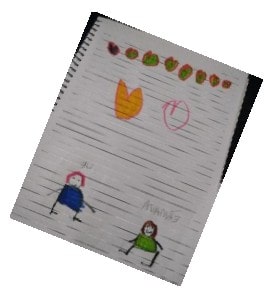What is DYSLEXIA by Rose Gonçalves
Definition of the International Dyslexia Association:
Dyslexia is a specific learning disorder of neurobiological origin, characterized by difficulty in accurate and/or fluent recognition of words and the low decoding and spelling skills.
These difficulties usually stem from a deficit in the phonological component of language, often surprising when compared to other cognitive skills and access to learning. Consequences
secondary may include difficulties with text comprehension and poor reading experience, which may impede the development of vocabulary and general knowledge. (2002)
 Signs or symptoms of Dyslexia
Signs or symptoms of Dyslexia
The person with dyslexa has difficulty recognizing, decoding and spelling words, in addition to presenting slow reading and writing. Also included among symptoms are the inversion of letters or numbers, problems with memory and interpretation of texts.
What can cause this dyslexia disorder?
Many researchers believe that dyslexia is related to genetic baggage, communication difficulties between neurons or late development of the central nervous system, such scientific factors explain the existence of the disorder.
How to deal with dyslexia?
Everyone who lives with a child or adult with dyslexia needs to understand that the way to treat these people must be cautious and requires a lot of respect for the time it takes to learn something new and the family environment counts a lot, because that is where the references and the security they need to feel stimulated, the school also plays a very important role in the inclusion of dyslexic children or adolescents. Educators need to find ways to encourage the student's autonomy and self-esteem, create strategies such as giving oral and written instructions, always being attentive to the peculiarity of each student, explaining in a concrete way and scheduling group activities outside the classroom, will be factors that will make a big difference in the development of these students.
Dyslexia is a disorder that accompanies the person throughout life, there is no cure, it is also not a disease, so if it is accompanied by qualified professionals, it will have a significant improvement in the academic, personal, social trajectory and even if they present difficulties in the area of reading and writing, the person with this disorder does not have impaired intelligence.
So, you could understand a little bit about this disorder, right? ?
Now, something that we hear a lot in the sessions is how prejudice and the lack of real inclusion has been causing suffering in many families, people who superficially look at the human essence need to review their attitudes. Behavioral change is what best defines the ability of human beings to reinvent and evolve.
 Rose Gonçalves
Rose Gonçalves
Neuropsicopedagoga
Pedagogue and researcher
in inclusive education
Fontes:
https://www.institutoabcd.org.br/o-que-e-dislexia/
http://www.dislexia.org.br/o-que-e-dislexia/
https://www.ufsm.br/app/uploads/sites/358/2019/07/MD_Psicologia-doDesenvolvimento-e-da-Aprendizagem.pdf